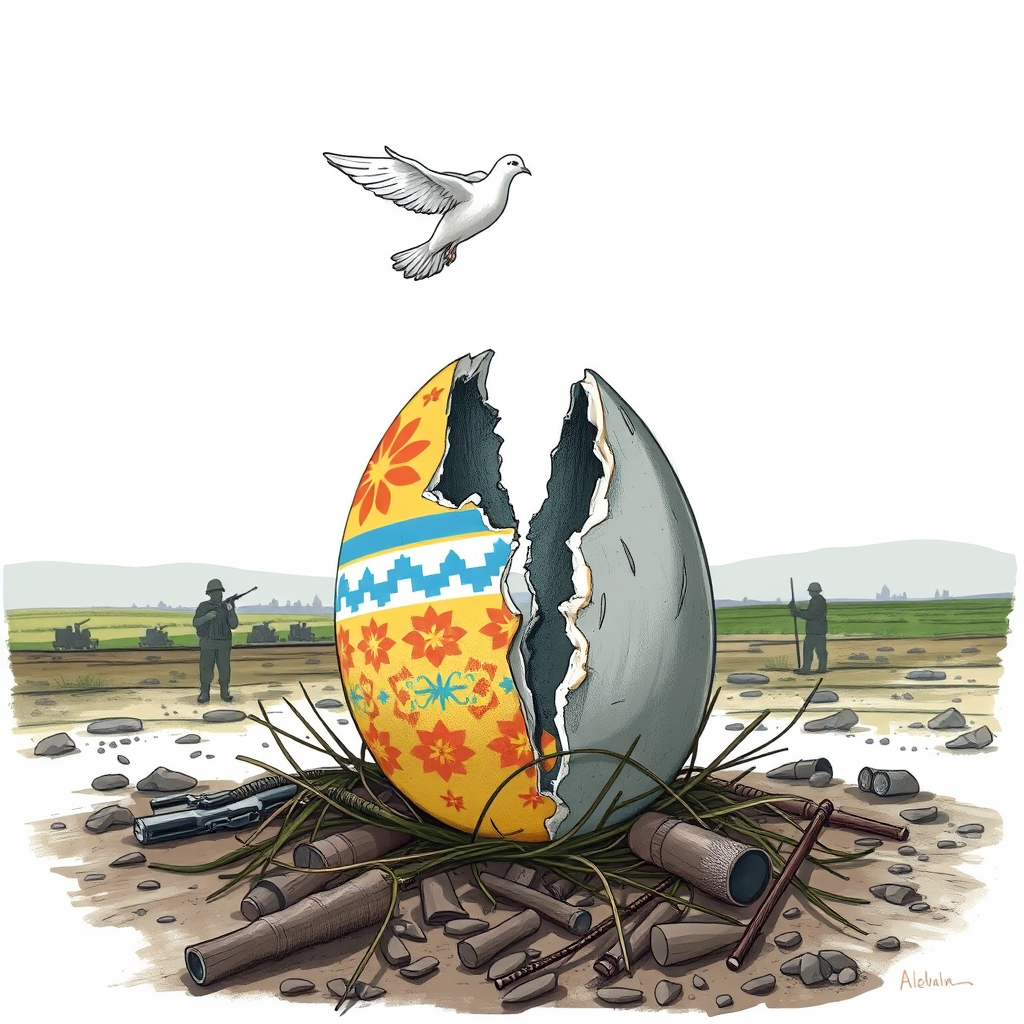Ukraine to Observe Easter Truce, Accuses Russia of Violations

Kyiv – Ukrainian President Volodymyr Zelensky announced Saturday that his forces would observe a surprise Easter truce declared by Russian President Vladimir Putin, set to last until midnight Sunday, despite immediate reports of continued fighting and air raid sirens sounding in the capital. The truce, potentially the most significant pause in the three-year conflict, was met with deep skepticism from Ukrainian officials and soldiers, who allege Russia continued artillery fire and assaults on the frontline even after the supposed commencement of the ceasefire.
The announcement followed months of lobbying by former US President Donald Trump for a truce between Moscow and Kyiv, with Washington previously threatening to withdraw from negotiations if no progress was made. Putin, in televised remarks, stated the truce was motivated by “humanitarian reasons” and expected Ukrainian compliance, while also warning Russian troops to be prepared for potential breaches.
Zelensky responded by stating Ukraine would mirror Russia’s actions, and proposed extending the truce beyond Sunday if Russia genuinely adhered to the ceasefire. However, he quickly accused Russia of already violating the agreement, citing ongoing assaults and artillery fire. A significant prisoner exchange occurred Saturday, with each side returning over 240 captured fighters, facilitated by the UAE, bringing the total number of returned POWs to 4,552.
Reports from the ground paint a grim picture. Oleksandr Prokudin, governor of Ukraine’s southern Kherson region, reported continued drone attacks despite the announced truce. Soldiers in the eastern city of Kramatorsk expressed widespread distrust, recalling previous failed ceasefire attempts. Many believe the truce is a tactic to create a false impression of goodwill or to allow Russia to regroup.
The timing of the truce follows Russia’s recent abandonment of a moratorium on striking Ukrainian energy targets, a commitment both sides had accused each other of violating. Putin framed the truce as a test of Kyiv’s sincerity in pursuing peace talks.
Zelensky, while stating Ukraine would reciprocate the truce, remained deeply skeptical, pointing to Putin’s previous rejection of a 30-day unconditional ceasefire proposal. He emphasized Ukraine’s preparedness to respond to any Russian violations. The overall sentiment suggests a lack of faith in Russia’s commitment to a genuine cessation of hostilities.
This situation underscores a deeply entrenched cycle of distrust and conflict. While a temporary pause in fighting is welcome, the immediate reports of violations and the pervasive skepticism among Ukrainian forces suggest this truce, like previous attempts, may prove short-lived. The conflict appears poised to continue, with both sides bracing for renewed hostilities. It’s a fragile moment, and the sincerity of Russia’s intentions will be crucial in determining whether this truce represents a genuine step towards peace or merely a temporary respite before the fighting resumes.